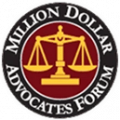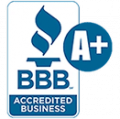Find the latest updates about Massachusetts personal injury law and answers to your legal questions on the DiBella Law blog.
property owners to maintain a space that is safe. Whether you are renting an apartment, a home, or another type of property, most of us generally expect the environment to be free of dangers that could cause us harm. Unfortunately,...
of beautiful trails making up Boston Harborwalk and almost 200 miles of coastline in Massachusetts, boats are a common form of transportation in the area. According to the Boston Water Taxi website, the line offers 500 daily departures with the...
rich history, vibrant culture, and bustling streets, is a haven for locals and tourists alike. However, navigating the busy streets of Boston as a pedestrian can sometimes be challenging and, unfortunately, accidents do happen. At DiBella Law Offices, we understand...
more frequently than many realize in Massachusetts, and Boston is no exception. Every year, hundreds of cyclists in the city seek medical treatment for injuries sustained in crashes.Injuries from bicycle accidents can range from minor cuts and scrapes to life-altering...
presents its own set of challenges, with bustling city streets, winding rural roads, and everything in between. As a seasoned personal injury lawyer at DiBella Law Offices, I’ve encountered numerous cases stemming from accidents on some of the state’s most...
to receive the best possible medical care for any condition they may experience. However, on occasion inattentive health care professionals will misdiagnose or fail to diagnose a potentially life-threatening ailment, resulting in unnecessary treatment, a more serious illness or even...
is a topic that often sparks debate and confusion. Some argue that motorcyclists who lane split are putting themselves at risk, while others believe that lane splitting can help motorcyclists avoid certain types of accidents. So, what happens when a...
known as dashcams, are a popular accessory in many vehicles today. They may be powered by the cigarette lighter socket that’s hardwired directly to the battery car. Some models have screens on the back of the camera that allow occupants...
overworked and tired delivery truck drivers are common in Massachusetts. Amazon drivers are among the most involved in delivery accidents, given their extreme working conditions. A single Amazon driver delivers as many as 300 packages daily, often without time to...







